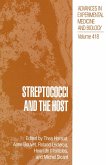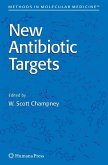Leading researchers review the activation of the mammalian immune system by bacterial DNA and its immunostimulatory sequences (ISS), and consider the applications of ISS in clinical medicine. The authors survey the latest findings concerning the receptor-recognition and signaling pathways triggered by ISS , the process of cell activation, and the potential vaccination strategies using ISS. Specific pharmaceutical applications discussed include infectious disease (Hepatitis B, HIV, and mycobacterial infections), allergy (asthma and conjunctivitis), cancer (lymphoma), and inflammation and autoimmunity (arthritis and colitis).
"I am delighted, therefore to have found this book, which thoroughly reviews the field by contributions from most of the key names associated with the subject. For those not yet initiated into the tell-tale nature of ISS-DNA presented by non-self, the excellent introductory chapter by Eyal Raz(Editor) will reveal all you need to know to read the rest of the book. It summarizes the role of Toll Receptors(TLR) as sensors of infection by recognition of conserved molecular patterns in pathogenic bacteria (PAMPS), a subject very topical these days but riddled with a lot of new reference terms for the poor immunologist to contend with. This new book highlights the fact that even the ubiquitous DNA molecule has been the subject of critical censorship during evolution and has allowed the mammalian innate immune response to use subtle differences between prokaryotic and eukaryotic DNA to inform of bacterial invasion...recommended as an excellent library acquisition, if not a departmental one." -- Immunology News
"This is a worthwhile endeavor and the book is of value. Investigators interested in the overall utility of these DNA sequences will find useful material..." -Doody's Health Sciences Book Review Journal
"This is a worthwhile endeavor and the book is of value. Investigators interested in the overall utility of these DNA sequences will find useful material..." -Doody's Health Sciences Book Review Journal








